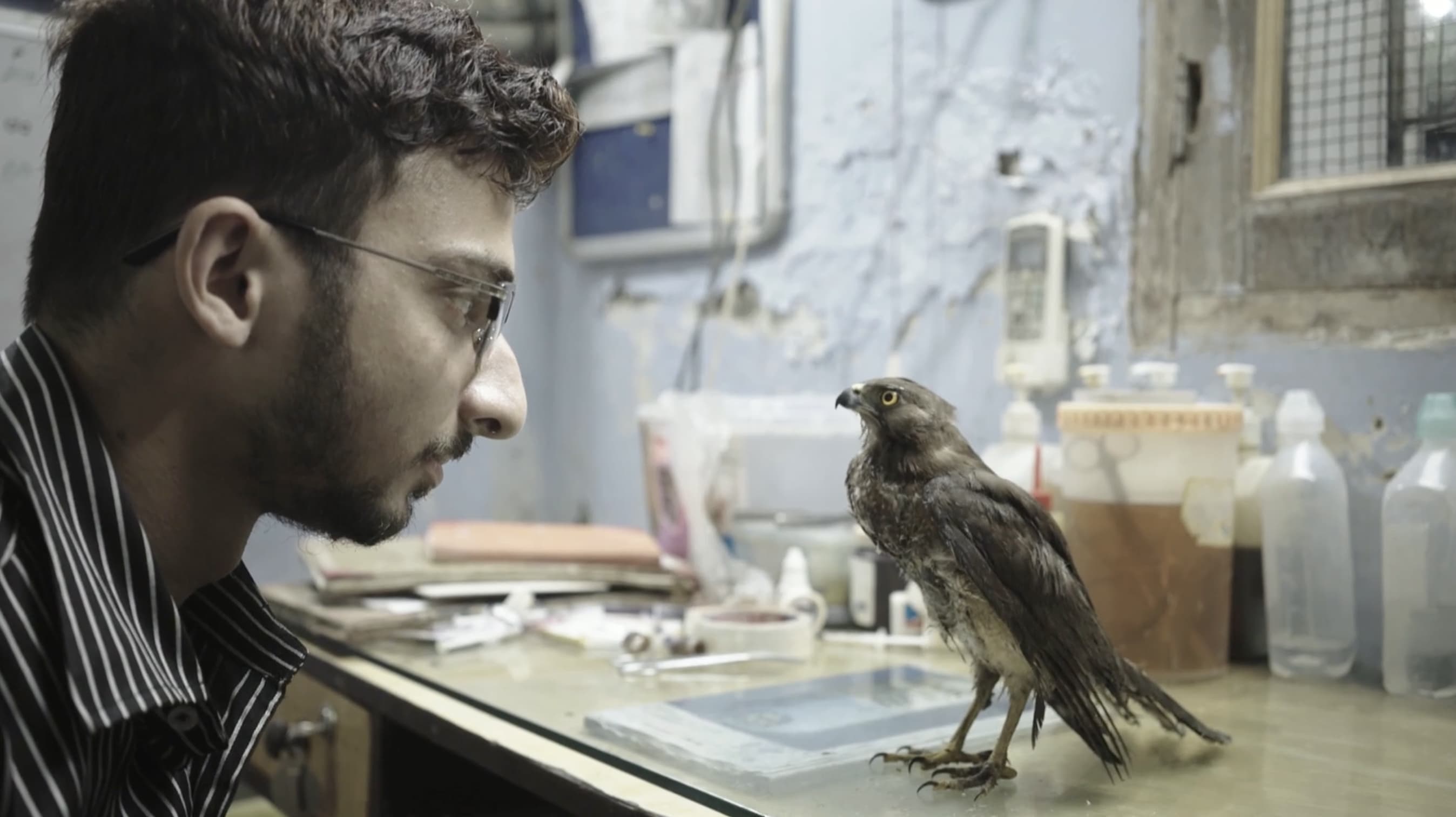
All That Breathes
Against the darkening backdrop of New Delhi's apocalyptic air and escalating violence, two brothers devote their lives to protecting one casualty of the turbulent times: the bird known as the black kite.

CinemaSerf@Geronimo1967
Set amidst a backdrop of civic and religious unrest in New Delhi, this rather dry documentary follows three men who spend much of their waking hours trying to rescue the population of Black Kites that - like the human population - are being seriously affected by the toxicity of the air and the water in their home city. Our opening scene see Salik arrive at their home with loads of fruit boxes that appear to have minds of their own! Enclosed are these beautiful but rather scrawny and malnourished birds that need a good cleaning and some tender loving care. Mohammad Said and Nadeem Shehzad are definitely men on a mission - and we gradually realise the scale of their endeavour - and, ultimately. the impossibility of them saving all - or even most - of these creatures. Meantime, the city is suffering from violent domestic strife that causes them to send their families to neighbouring Old Delhi - a move that enables them to focus solely on their opening of a pet care shop. Nobody is medically qualified here - the family business is soap dispensers; but a bit of reading and a painstakingly acquired working knowledge of just how to heal many of their illnesses - along with a genuine community spirit from neighbours who help out with meat etc. - makes for a compelling watch at times. For me, though, it was all rather slow and told in too a pedestrian a fashion. Whilst their efforts are laudable, these three have little charisma and come across as dedicated but just a bit too dull and earnest to spin this out for an over-long 97 minutes. I could also have been doing with just a little more science as to the nature of the illnesses affecting the birds and a little more on the politics driving the riots. That said, it is worth a watch - but it is disappointing.
Louisa Moore - Screen Zealots@screenzealots
**By: Louisa Moore / www.ScreenZealots.com**
A traditional documentary of the cinéma vérité variety, “All That Breathes” is a beautiful story of human kindness towards winged creatures. The film tells the story of two brothers who run a bird hospital in India that’s dedicated to rescuing injured black kites, a prolific raptor that soars high above the rooftops of New Delhi. It’s one of the world’s most populated cities, and the extreme heat, rampant pollution, and choking smog wreaks havoc on the avian species, causing them to fly into high rise buildings, become entangled in wires, and literally drop from the sky. Thousands of birds have been saved thanks to the pure hearts of two men, and director Shaunak Sen‘s film is a touching tearjerker that should be an inspiration to all.
By allowing his camera to observe in real time, Sen puts us right there in the room along with Saud and Nadeem as they race to the aid of dozens of birds of prey. It’s an intimate view of what it takes to run an avian rescue, and the style allows Sen to capture spectacular moments of reality. In their modest, cramped garage, the brothers delicately and lovingly care for the injured raptors with limited equipment and supplies. It’s truly incredible how many animals these men have helped, even if they can’t save them all. They certainly try their best by devoting their lives to care for the injured black kites, and it’s a beautiful display of compassion towards the Earth’s creatures.
The captivating photography transports viewers into a foreign land and really captures the feeling, atmosphere, and sense of place. The film is as politically timely as it is poetic, and director faces head-on the very real threat of climate change and other government restrictions. Despite all obstacles, Saud and Nadeem keep moving forward by working on their mission.
“All That Breathes” is a beautiful story with an equally beautiful storytelling style. It’s a touching documentary that celebrates the very best of humanity, and is an encouraging picture of two men who are working tirelessly to make this world a better place.
